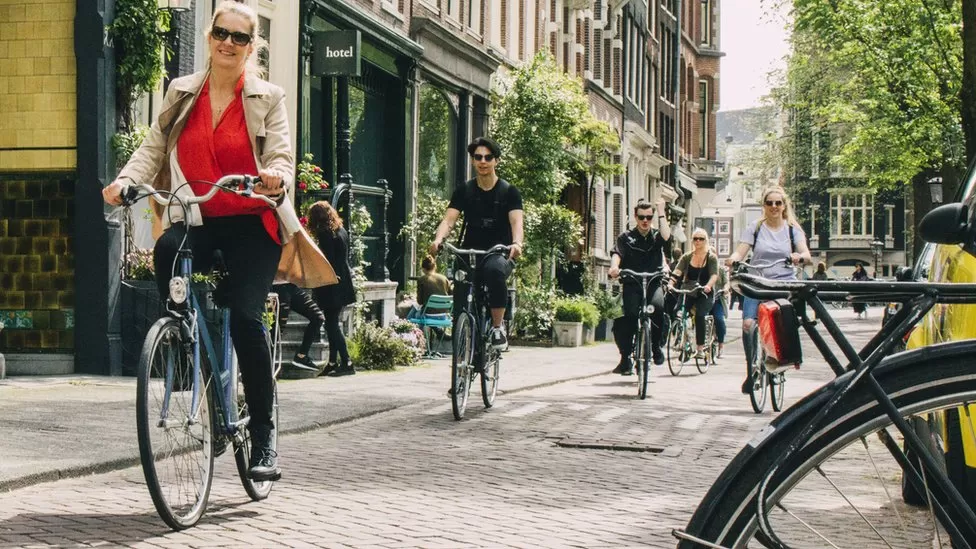A traditional industrial economy uses raw materials to make products which are discarded when they are no longer wanted, sometimes before the end of their useful lives.
The circular economy aims to break the link between economic activity and using up the earth’s resources. This may involve reusing, repairing, and sharing materials and products.
While sustainability is on the agenda across many countries, in the Netherlands the government has set out bold plans to make the economy circular as quickly as possible.
In 2020 the Amsterdam declared itself the first city in the world to commit to building a circular economy, focusing on food and organic waste streams, consumer goods, and the built environment.
In seven years’ time Amsterdam plans to have halved its use of new raw materials. By 2050, the ambition is to be fully circular – relying only on used and recycled materials.
That will be a big challenge for the construction industry, which is responsible for more than 30% of the extraction of natural resources and 25% of solid waste generated in the world.
Read more at BBC.com





